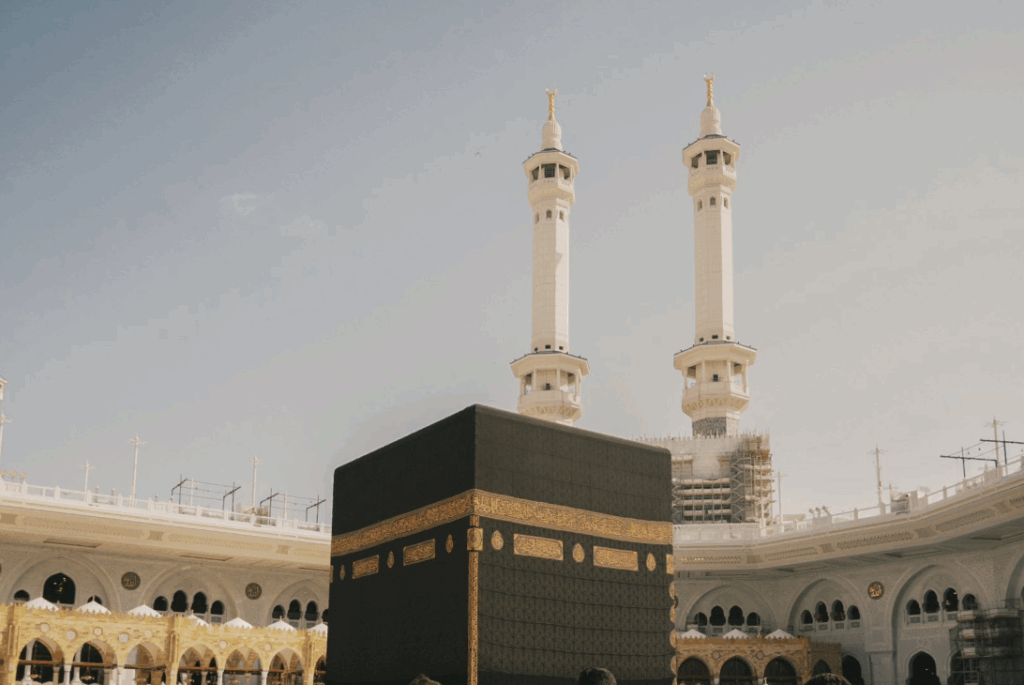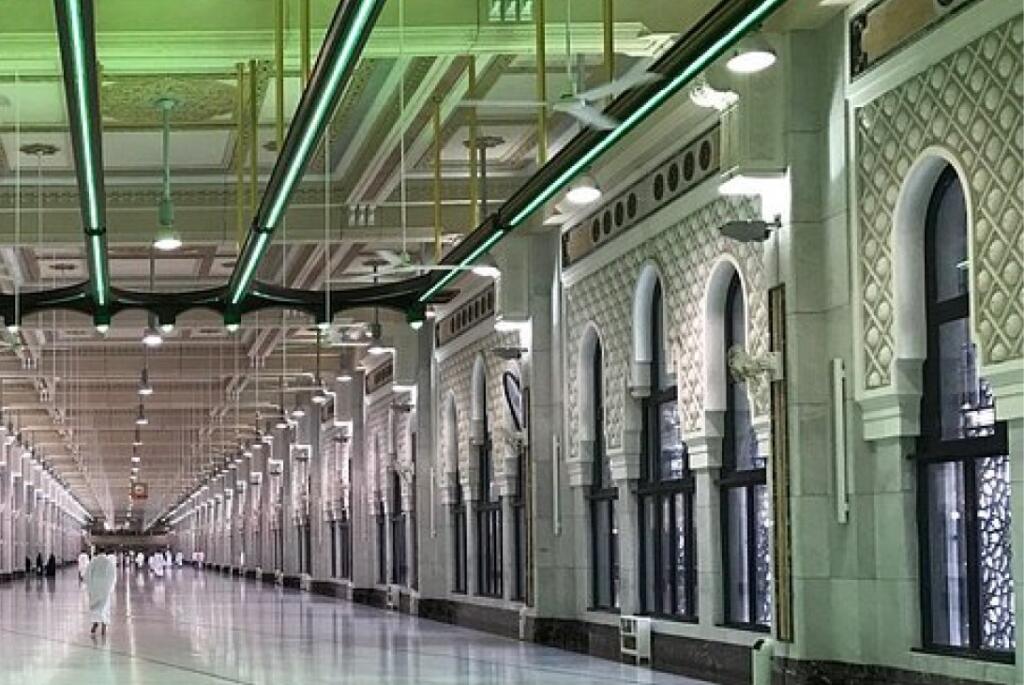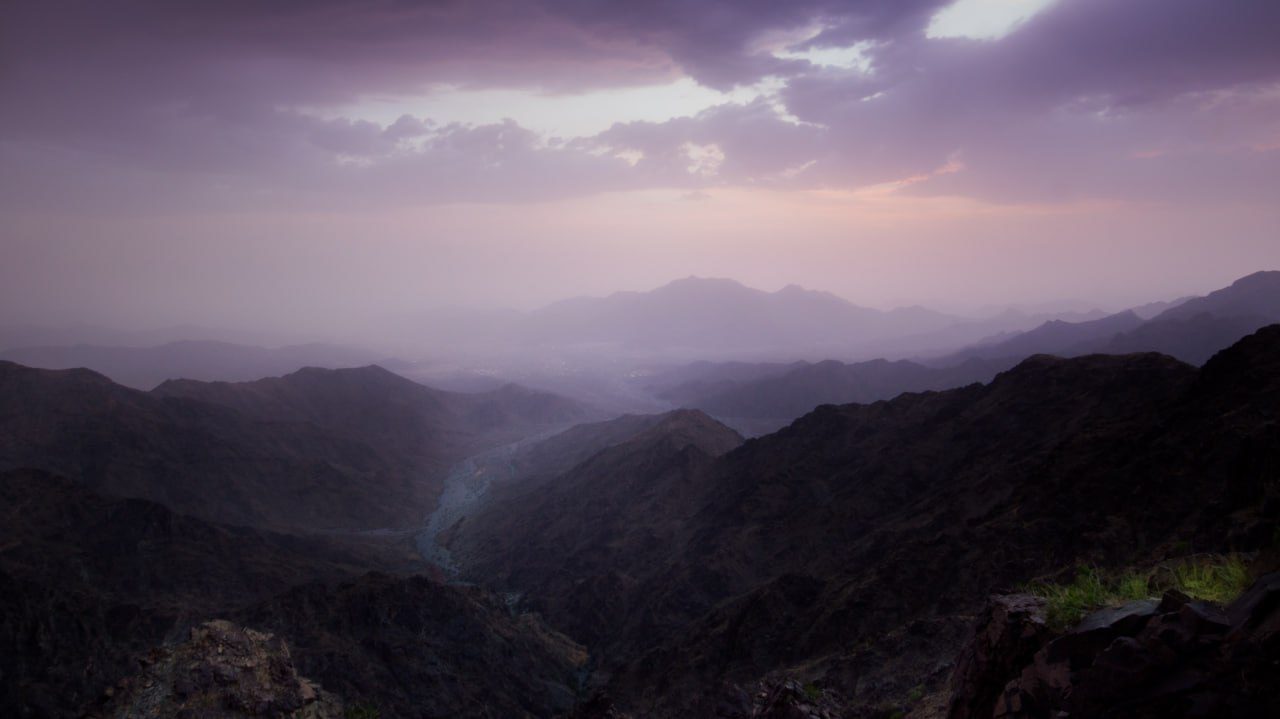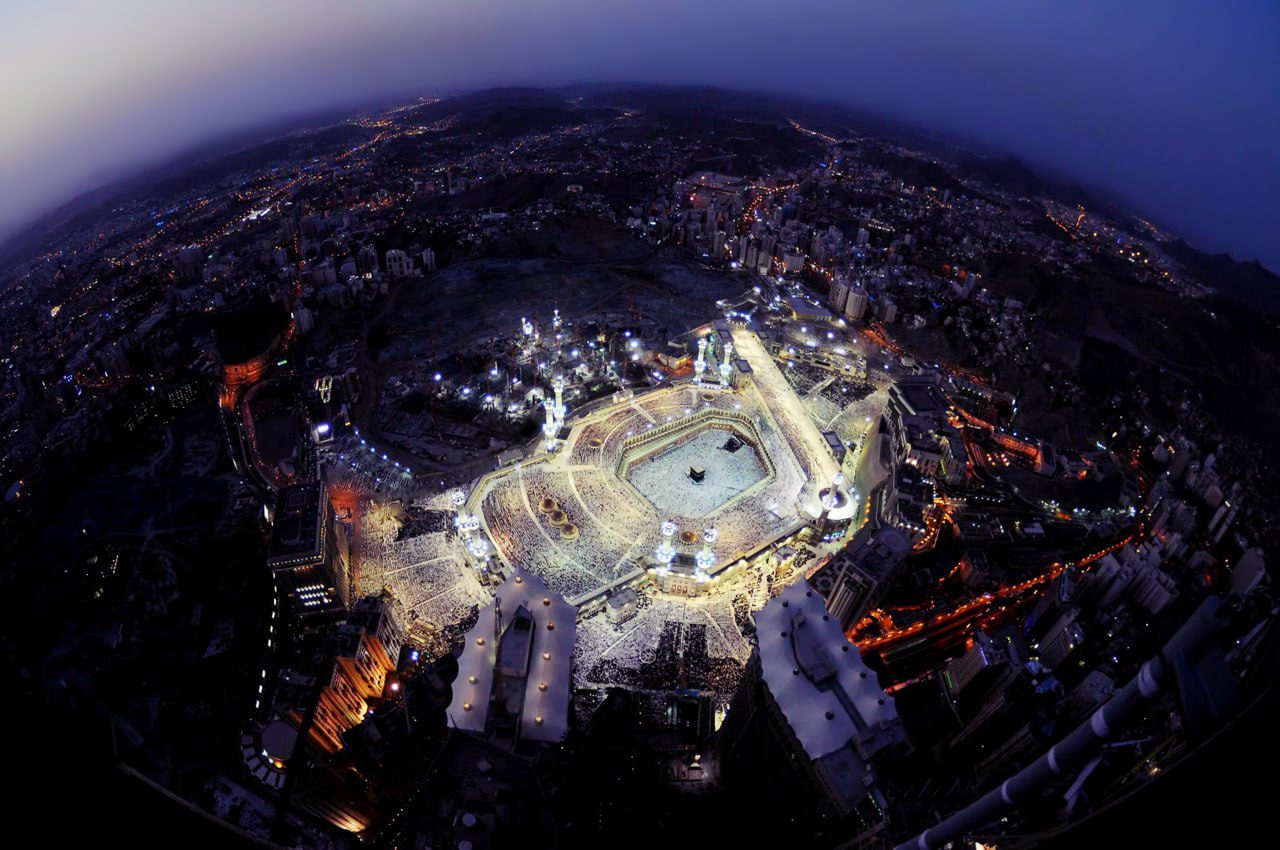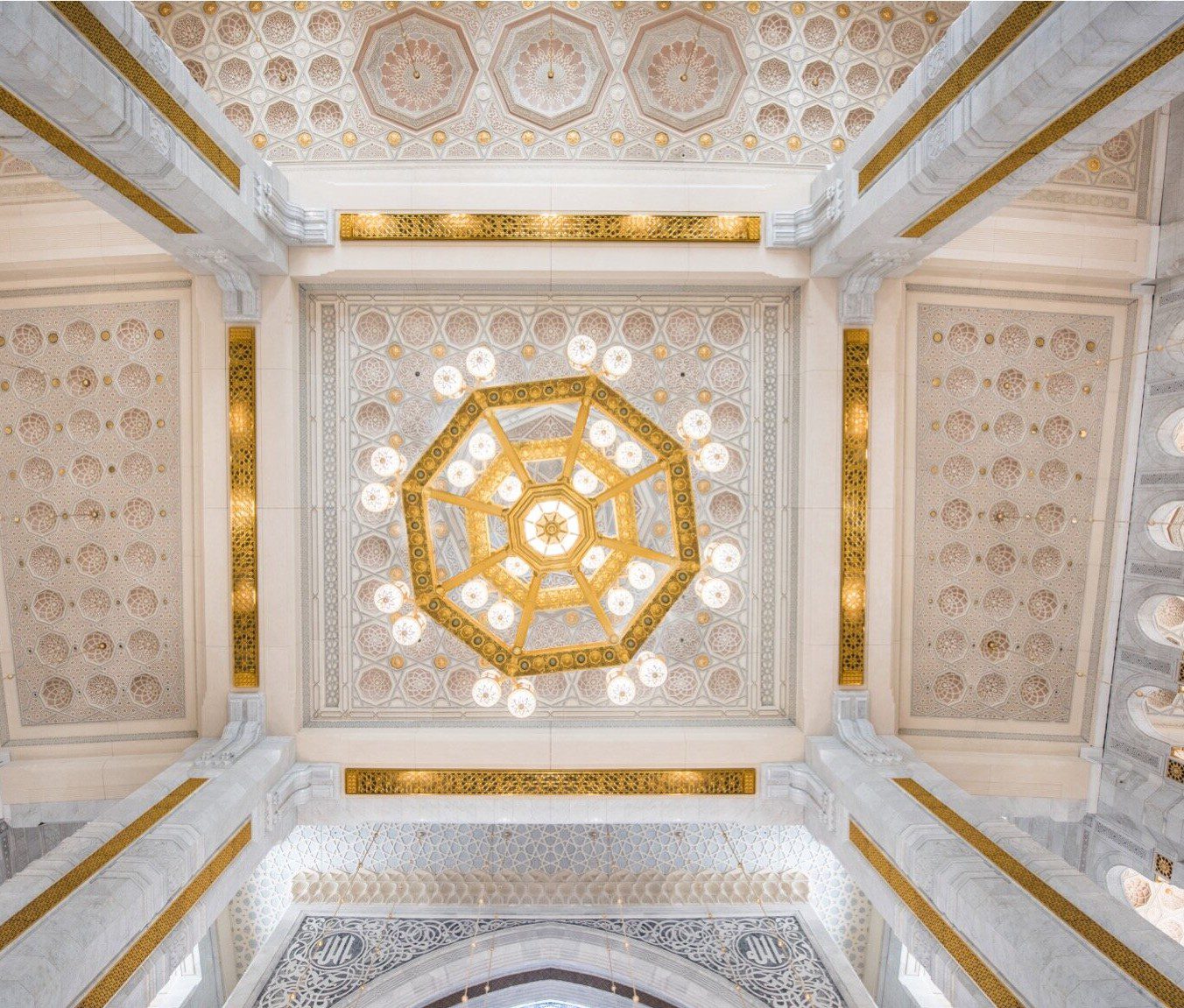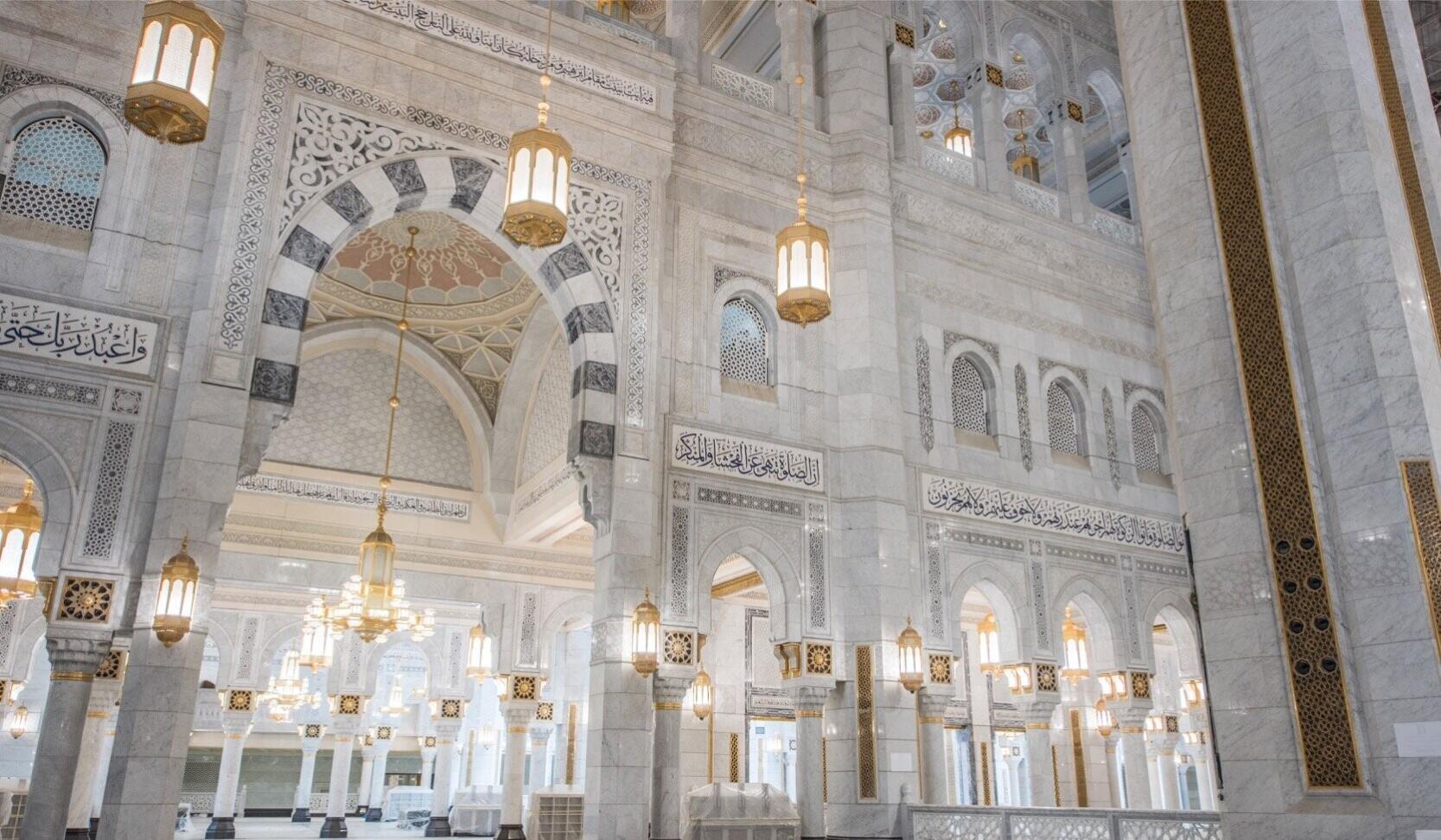وَإِذْ جَعَلْنَا الْبَيْتَ مَثَابَةً لِّلنَّاسِ وَأَمْنًا وَاتَّخِذُوْا مِنْ مَّقَامِ إِبْرَٰهِيْمَ مُصَلًّى وَعَهِدْنَآ إِلَىٰٓ إِبْرَٰهِيْمَ وَإِسْمَـٰعِيْلَ أَنْ طَهِّرَا بَيْتِىَ لِلطَّآئِفِيْنَ وَالْعَـٰكِفِيْنَ وَالرُّكَّعِ السُّجُوْدِ
“And (remember) when We made the House a centre and a sanctuary for the people (saying), ‘Take the standing-place of Ibrāhīm as a site of prayer.’ And We entrusted Ibrāhīm and Ismāʿīl to purify My House for those who circle it, who stay in iʿtikāf, and who bow and prostrate themselves (in prayer)” (2:125).
Ṭawāf is the most beloved act in which you can draw near to Allah in His House. The Messenger of Allah ﷺ said, “Whoever circles the Kaʿbah seven times and prays two rakʿahs will be rewarded as if he had freed a slave. A man does not raise his foot, nor bring it back down, except that ten good deeds will be written for him, ten bad deeds will be erased, and he will be raised by ten degrees” (Aḥmad).
The Secrets of Tawaf
Whilst you are performing ṭawāf, bear the following in mind:
1. Express your servitude to Allah. Ṭawāf is a display of the Oneness of Allah and of your servitude to Him.
2. Feel the honour and be humble. Being a guest in His house should create a feeling of honour and humility. Nāfiʿ (the freed slave of Ibn ʿUmar) said: “I have witnessed people who would perform ṭawāf of this House as if there were birds on their heads, so still and humble.” They did not treat the Sacred House as though it were a tourist site.
3. Place Allah at the centre of your heart. The aim of ṭawāf isn’t merely to move your body around the House, but to revolve your heart around the remembrance of the Lord of the House. The Prophet ﷺ said, “Ṭawāf around the Kaʿbah, walking between Ṣafā and Marwah, and the stoning of the Jamarāt were only prescribed to establish the remembrance of Allah” (Tirmidhī).
4. Express your love for Allah. Experience the joy of ṭawāf as you lose yourself in circulating Allah’s House, not out of habit, but out of love. You move round and round, not counting steps, but chasing nearness to the One you love. Let your heart be immersed in His remembrance, your soul overwhelmed by His mercy, and your entire being filled with longing and love.
5. Remember that above you, in the heavens, angels are circling al-Bayt al-Maʿmūr, just as you are circling His House on earth. They move in the same pattern, around the same centre, in the same direction. You are all seeking His mercy and yearning for His acceptance.
6. Strive to draw close to Allah. Circling the Kaʿbah seven times mirrors the cycles of your life: waking, working, and resting. In ṭawāf, each turn is a step closer to Allah. It reminds you that in your daily routines, you too should strive to draw nearer to Him.
7. Stay focused. Ignore the pushing and shoving and don’t fight or argue with people. Allah ﷻ says:
فَمَنْ فَرَضَ فِيْهِنَّ الْحَجَّ فَلَا رَفَثَ وَلَا فُسُوْقَ وَلَا جِدَالَ فِى الْحَجِّ وَمَا تَفْعَلُوْا مِنْ خَيْرٍ يَّعْلَمْهُ اللّٰهَ
“…Whoever commits to (performing) ḥajj, let them stay away from intimate relations, sins, and arguments during ḥajj. Whatever good you do, Allah knows of it…” (2:197).
Don’t push, elbow others or rush to finish ṭawāf. It is not a race. Rather, become absorbed in remembering and conversing with Allah and savour every moment.
8. Don’t be afraid of the crowd. You never know where the mercy will land. Among the thousands of pilgrims, there may be someone whose sincerity brings down Allah’s mercy, and you might be standing right next to that person. ʿAlī b. Abī Ṭālib (raḍiy Allāhu ʿanhu) once saw a man making ṭawāf while carrying his elderly mother on his back. Inspired, ʿAli (raḍiy Allāhu ʿanhu) joined the ṭawāf just to be part of that moment. Later, he said: “I didn’t even have the intention to make ṭawāf, but when I saw this man with his mother, I thought perhaps mercy would descend upon him, and I wanted some of that mercy to reach me too.”
9. Feel the unity. You will see all types of people from different parts of the world circulating the Kaʿbah for the same reason. The greatest scholars, sages, leaders, the wealthy, and the poor, are all united in awe, love and devotion to Allah.
Tip: Assign a specific purpose for each round of ṭawāf so that you’re not wandering aimlessly. Some choose to recite the Qur’ān during ṭawāf, whereas others choose to do dhikr, make duʿā’ and some a mix of all three. An example of a plan could include:
- 1st round: Praising Allah
- 2nd round: Ṣalawāt
- 3rd round: Seeking forgiveness
- 4th round: Supplicating for your hereafter
- 5th round: Supplicating for your worldly needs
- 6th round: Supplicating for your parents, family and friends
- 7th round: Supplicating for the ummah
Istilam
Istilām is to touch or kiss the Black Stone. It is done at the beginning of each round of ṭawāf.
Your ṭawāf should start at the Black Stone (or in parallel with it), just like how our beloved Prophet did. He ﷺ approached the Black Stone, put his hands on it, glorified Allah ﷻ and kissed it, in a state of tears.
You can do istilām by kissing the Black Stone; putting a stick or something similar on it and then kissing the stick; or raising your hands towards it and saying ‘Allāhu Akbar’ or ‘Bismillāhi Allāhu Akbar’. [In the Name of Allah; Allah is the Greatest]’. (N.B. You are most likely to use this last method due to the large crowds).
The Messenger of Allah ﷺ said about the Black Stone, “By Allah, Allah will resurrect it on the Day of Judgement with two eyes by which it will see and a tongue by which it will speak, testifying for the one who did istilām of it sincerely” (Tirmidhī).
Although the reward for kissing the Black Stone is immense, remember that kissing it is a sunnah but harming another believer is a sin. Thus, if you would like to kiss the Black Stone, be very cautious as hurting and pushing other people results in more harm than the reward of kissing the Black Stone and you will inshāAllah be rewarded for your intention.
A woman once told ʿĀ’ishah (raḍiy Allāhu ʿanhā), “O Mother of the Believers, I walked around the Kaʿbah seven times and kissed the Black Stone twice or thrice.” ʿĀ’ishah (raḍiy Allāhu ʿanhā) replied, “May Allah not reward you for that! Why did you push and shove past the men? Why didn’t you just say takbīr and pass by?”
The Secrets of Istilam
1. Pledge allegiance to Allah. When you approach the Black Stone, believe that you are pledging allegiance to Allah, the Exalted, in obedience to Him. Firmly resolve in your heart to honour this pledge.
2. Submit to Allah. The Black Stone is a symbol of submission. ʿUmar b. al-Khaṭṭāb (raḍiy Allāhu ʿanhu) said, “I know that you are a stone that does not harm nor benefit. Had I not seen the Messenger of Allah ﷺ kiss you, I would not have kissed you.” This teaches you to submit wholeheartedly and follow the sunnah, even in matters your intellect cannot comprehend.
3. Focus your heart on Allah. When you make istilām of the Black Stone, you are once again, affirming the Oneness of Allah (tawḥīd); this is to serve as a reminder of where the true focus of your heart should be.
4. Remind yourself of Allah’s greatness. The crowd, the noise, or the pushing and shoving may have distracted you during your ṭawāf, but this moment is your chance to refocus. By saying, “Allāhu Akbar” you are reminding yourself that Allah is greater than the chaos around you, greater than the discomfort you’re feeling, and greater than anything that competes for your attention.
5. Long for Paradise. You are kissing or gesturing towards a stone that has come from Paradise. The Messenger of Allah ﷺ said, “The Black Stone descended from Paradise and it was whiter than milk, but the sins of the children of Adam turned it black” (Tirmidhī).
Act: Close your eyes and imagine you are in Paradise for that moment and then beg Allah to make you from amongst its inhabitants.
6. Feel the honour. If you have the opportunity to kiss the Black Stone, perhaps your lips may touch the very spot where the lips of the Prophet ﷺ once touched!
A Bedouin woman came to the Black Stone and heard a group of people making beautiful supplications. She said, “O Allah, You know that I don’t speak like they do, but I ask You for the same thing they are asking. So give me what You give them,” and she left.
Raml
In the first three rounds of ṭawāf, men will walk briskly. This is known as raml. Additionally, men will also keep their right shoulders uncovered during ṭawāf. This is known as iḍṭibāʿ.
Ibn ʿUmar (raḍiy Allāhu ʿanhu) said, “The Messenger of Allah (ﷺ) performed raml from the Black Stone to the Black Stone for three rounds, and walked normally for four” (Muslim).
Whilst you are doing raml, remember the following:
1. Show your strength. When the Prophet ﷺ came to Makkah with his Companions (radiy Allāhu ʿanhum), the disbelievers claimed that the Muslims had been weakened by the fever of Yathrib (Madinah). To counter this perception and display strength, the Prophet ﷺ instructed his Companions (radiy Allāhu ʿanhum) to perform raml during the first three rounds of ṭawāf.
Reflect: The strong believer is more beloved to Allah than the weak believer. How can you develop and use your strength for the correct causes?
2. Run from your sins. As you do raml, intend in your heart that you are fleeing from your sins and running from the weight of your past. Then, as you walk the remaining rounds, have hope that Allah will forgive you and have mercy on you.
The Rukn Yamani
The Prophet ﷺ only touched the Rukn Yamānī (the corner before the corner with the Black Stone); he didn’t kiss it. He ﷺ said, “Indeed, touching the Black Stone and the Yemeni corner (al-Rukn al-Yamānī) removes sins completely” (Tirmidhī).
Recite the following duʿā’ in between the Rukn Yamānī and the Black Stone, just as the Prophet ﷺ did:
رَبَّنَآ اٰتِنَا فِي الدُّنْيَا حَسَنَةً وَّفِي الْآخِرَةِ حَسَنَةً وَّقِنَا عَذَابَ النَّارِ
“…Our Lord, grant us good in this world and good in the hereafter, and protect us from the torment of the Fire” (2:201).
Two Rakʿahs of Tawafs & Maqam Ibrahim
After finishing ṭawāf, the Prophet ﷺ went to Maqām Ibrāhīm, reciting:
وَاتَّخِذُوْا مِنْ مَّقَامِ إِبْرَاهِيْمَ مُصَلًّي
“…Take the standing-place of Ibrāhīm as a site of prayer…” (2:125).
The stone, which is the مقام إبراهيم (standing place of Ibrāhīm), is the same stone upon which Ibrāhīm (ʿalayhis-salām) stood when he built the foundations of the Kaʿbah.
When you see the Maqām Ibrāhīm, think of the following:
- Feel the connection between yourself and Ibrāhīm (ʿalayhis-salām). Just as you left your homeland to answer Allah’s call and go to His Blessed House, Ibrāhīm (ʿalayhis-salām) also left Shām, responding to the command of Allah and making his way to Makkah. Here Allah blessed him to build the Ka’bah.
- Reflect on the honour Allah bestows on His special slaves when they strive for His sake to reform society according to His guidance.
Reflect: How will you continue the legacy of Ibrāhīm (ʿalayhis-salām) in laying the foundations for the continuation of īmān and the reform of society through Divine guidance? What will your legacy be?
Thereafter, the Prophet ﷺ performed two rakʿahs behind Maqām Ibrāhīm. He recited Sūrah al-Kāfirūn in the first rakʿah and Sūrah al-Ikhlāṣ in the second rakʿah: These two sūrahs emphasise tawḥīd (oneness of Allah), responding to the command of Allah of purifying His House from any form of shirk.
Reflect: Which of your actions, ideas and beliefs contradict tawḥīd? Which jāhilī (anti-Islamic) practice are you and your family clinging on to?
Act: Renew your commitment to Allah to remove these from your life, and beg Him to remove these from your heart.
Zamzam
After the two rakʿahs of ṭawāf, the Prophet ﷺ drank Zamzam and poured it over his head.
Zamzam is blessed water. When drinking the water, spend a few moments to think of the following:
1. Never ever lose hope in Allah’s mercy, no matter how severe your trials or calamities are. Your relief will come too. Just as the baby of Hājar (ʿalayhas-salām) was on the verge of dying of thirst, her relief came in a manner which she had never dreamt of: an angel hitting the earth causing blessed Zamzam water to flow from the ground.
2. Zamzam was used to purify the heart of the Prophet ﷺ. Jibrīl (ʿalayhis-salām) miraculously opened his chest, extracted his heart, and cleansed it in a vessel of Zamzam when he was only four years old, and on the Night of Miʿrāj. This water thus plays a significant role in purifying our hearts and strengthening our soul.
3. Realise that it is one of the ways of the fulfilment of duʿās. The Prophet ﷺ said, “The water of Zamzam is for whatever it is drunk for” i.e. it is a means of your duʿā being answered (Ibn Mājah).
- Imām al-Shāfiʿī (raḥimahullāh) would drink Zamzam with a special intention, saying, “We drank from Zamzam to gain knowledge, and indeed, we attained it. If we had drunk it for piety, it would have been even better for us.”
- ʿAbdullah b. al-Mubārak (raḥimahullāh) said, “I am drinking this (so that Allah quenches my) thirst on the Day of Judgement.”
4. Drink it with the intention of curing your physical and spiritual illnesses.
Holding onto the Multazam
The Multazam is the area between the Black Stone and the door of the Kaʿbah. The Prophet ﷺ would press his face and chest against Multazam. Ibn ʿAbbās (raḍiy Allāhu ʿanhu) used to say, “No one clings to this place and asks Allah for anything, except that Allah grants it to them.” (Bayhaqī).
As you hold on to the Multazam, think of the following:
- You are seeking nearness to Allah, out of love and longing for the House and the Lord of the House.
- You should also seek blessings in the physical touch; hoping for protection from the Hellfire, as every part of your body that comes into contact with it is granted eternal refuge.
- Clinging to the covering of the Kaʿbah should be an urgent request for forgiveness and a plea for safety, just as a sinner clings to the garments of the one to whom he has sinned. You are desperate for His mercy, knowing that you will only be released when He forgives and pardons you. This is why it was said that when al-Ḥasan al-Baṣrī (raḥimahullāh) saw someone clinging to the Multazam, he would say to those with him, “Move aside, so I can confess my sins to my Lord.”

